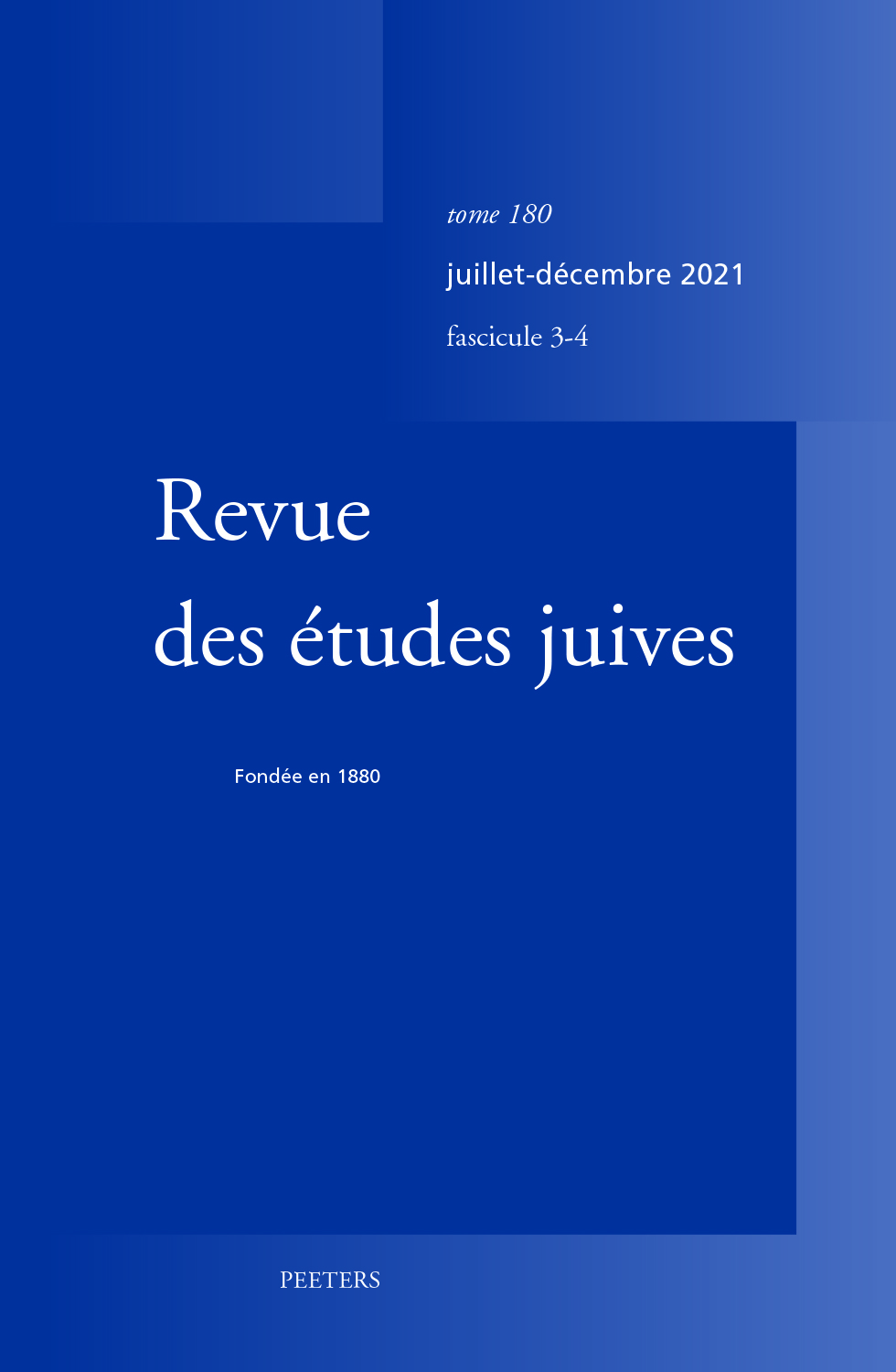 previous article in this issue previous article in this issue | next article in this issue  |

Preview first page |
Document Details : Title: Joseph Qara and the 'in hebreo' Interpretations in Hugh and Andrew of St. Victor's Commentaries on Genesis, Judges and 1-2 Samuel Author(s): LEYRA CURIÁ, Montse Journal: Revue des Études Juives Volume: 174 Issue: 1-2 Date: janvier-juin 2015 Pages: 111-143 DOI: 10.2143/REJ.174.1.3082880 Abstract : In this article, I intend to ascertain whether Joseph Qara (c. 1055-1120/1130), of the Jewish school of literal exegesis in northern France, was a direct source for some of the interpretations that Hugh (1090/1100-1141) and Andrew (d. 1175) of St. Victor ascribe to the Hebrew text (in hebreo) or to Jewish exegetes (hebrei, secundum hebreos) in their biblical commentaries. Firstly, I have chosen to systematically compare and contrast the interpretations that Hugh and Andrew ascribe to the Hebrew text or to the Jews in their commentaries on Genesis, Judges and 1-2 Samuel with parallel comments made by Joseph Qara on those same four books. Secondly, I aim to ascertain whether the Victorines, in their in hebreo or secundum hebreos interpretations, have employed certain characteristic linguistic principles and literary-rhetorical devices of the Northern-French school that are also found in Joseph Qara’s commentaries. Lastly, I analyse the relationship between the various Jewish sources and the Victorines’ in hebreo interpretations where parallels exist between the Victorines and Jewish sources other than Joseph Qara. My aim is to determine whether certain of the interpretations offered by the Victorines are closer to the parallels in Joseph Qara than to those in other Jewish sources. Je me propose dans cet article de déterminer si Joseph Qara (c. 1055-1120/1130), qui appartenait à l’école juive d’exégèse littérale du nord de la France, a été une source directe de certaines des interprétations que Hugues (1090/1100-1141) et André († 1175) de Saint-Victor rapportent au texte hébraïque de la Bible (in hebreo) ou à des exégètes juifs (hebrei, secundum hebreos) dans leurs commentaires bibliques. Pour ce faire, j’ai choisi de comparer systématiquement les interprétations que Hugues et André attribuent au texte hébraïque ou aux juifs dans leurs commentaires sur les livres de la Genèse, des Juges et de I et II Samuel avec les interprétations parallèles de Joseph Qara dans ses commentaires sur ces mêmes livres bibliques. D’autre part, j’essaierai de déterminer si, dans leurs interprétations in hebreo ou secundum hebreos, les Victorins ont employé des principes linguistiques et des moyens littéraires et rhétoriques caractéristiques de l’école juive du nord de la France, que l’on trouve aussi dans les commentaires de Joseph Qara. Enfin, j’analyserai la relation existant entre différentes sources juives et les interprétations in hebreo ou secundum hebreos, quand ces interprétations ont des parallèles dans des sources juives autres que Joseph Qara. Mon objectif est de déterminer si certaines des interprétations qu’offrent les Victorins sont plus proches des parallèles chez Joseph Qara que de ceux qui existent dans d’autres sources juives. |
|


